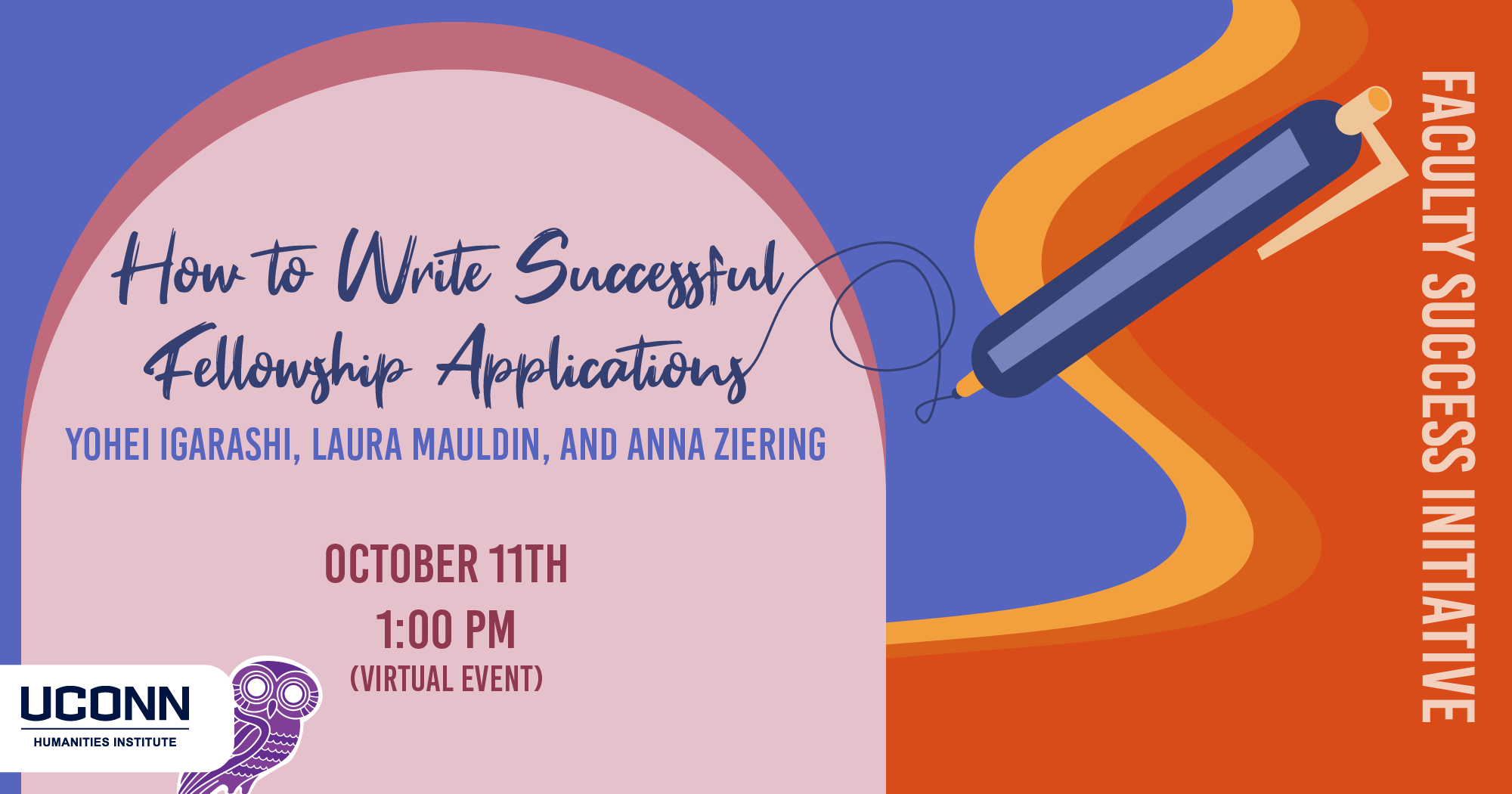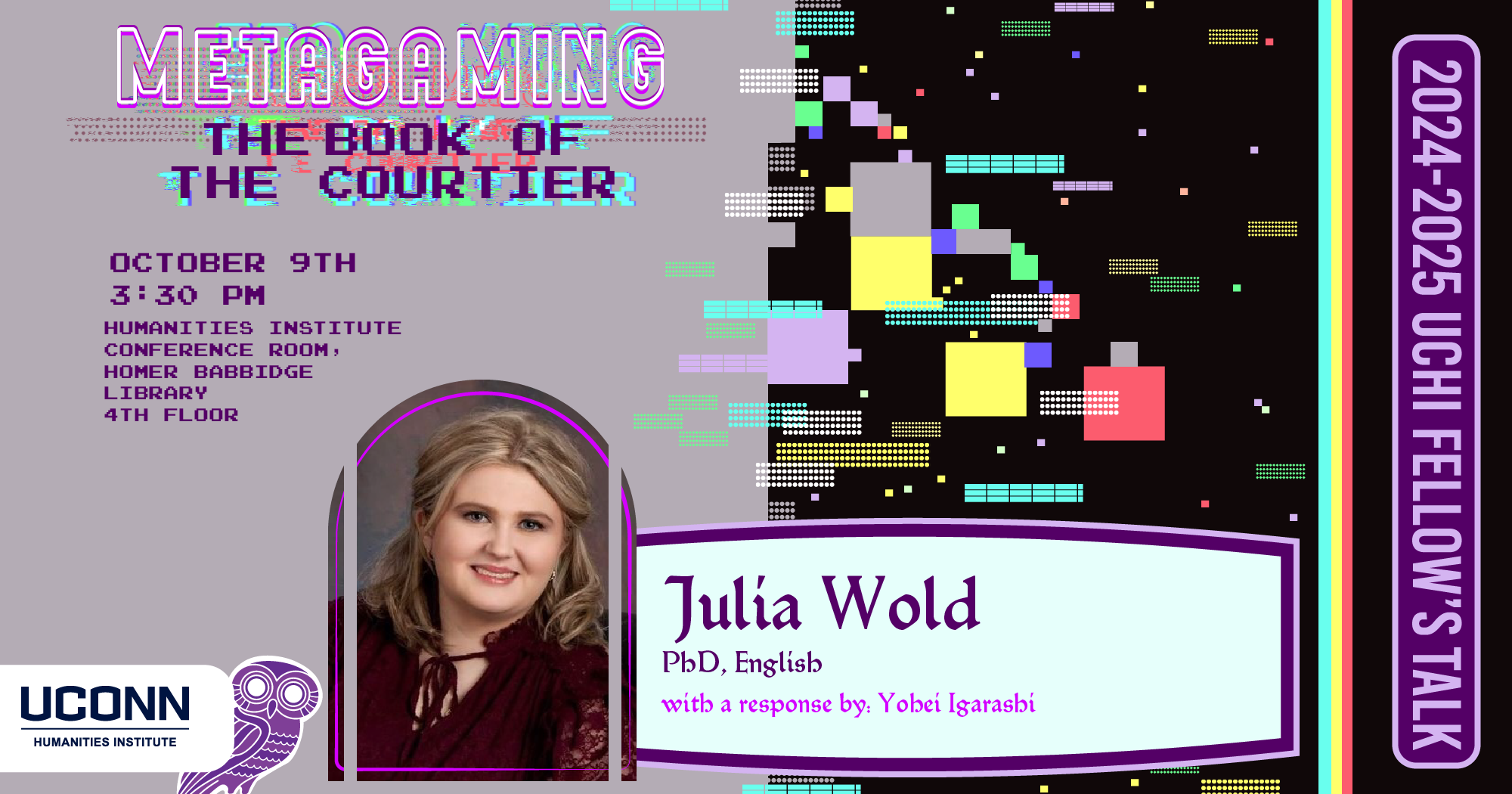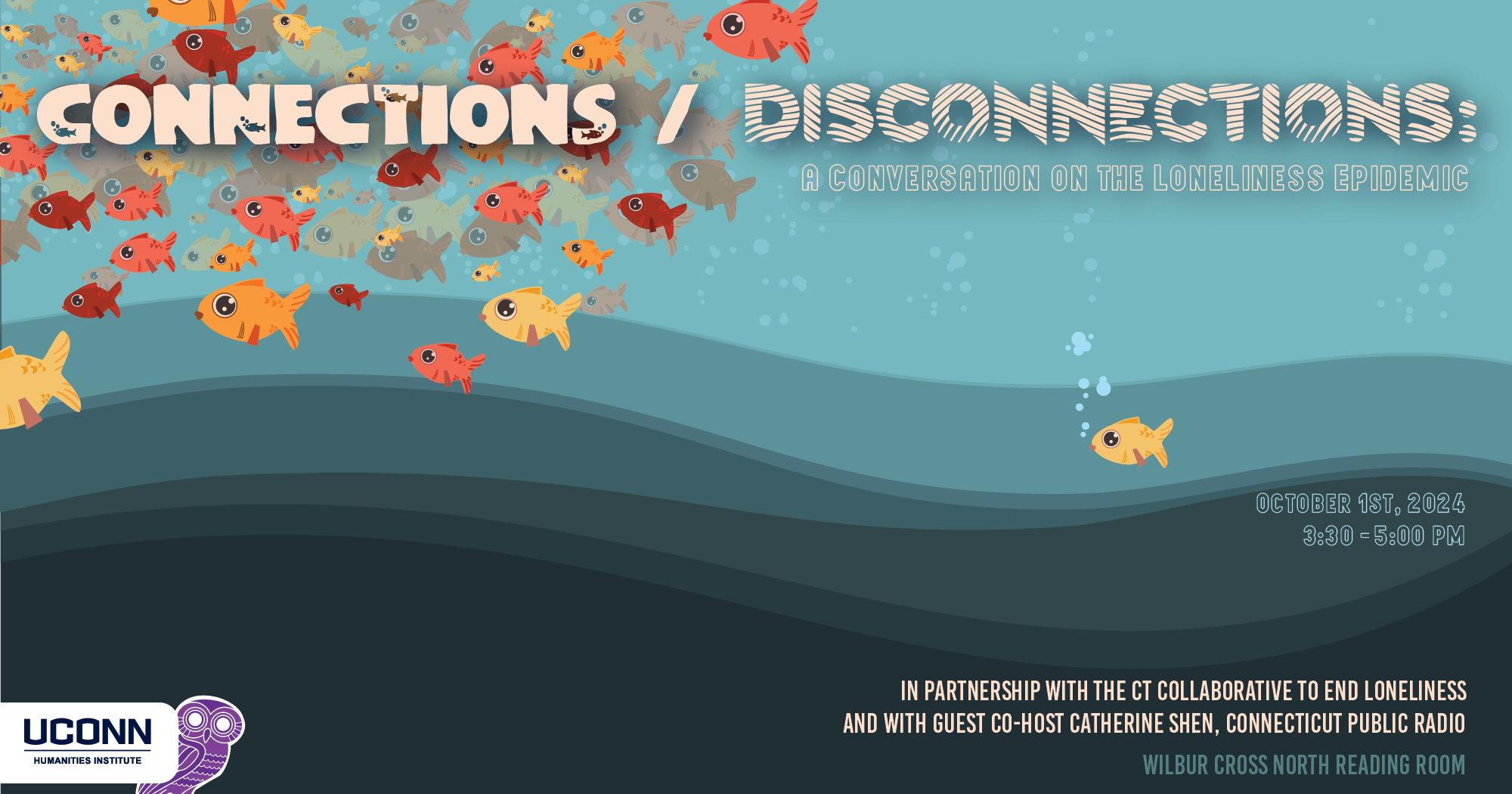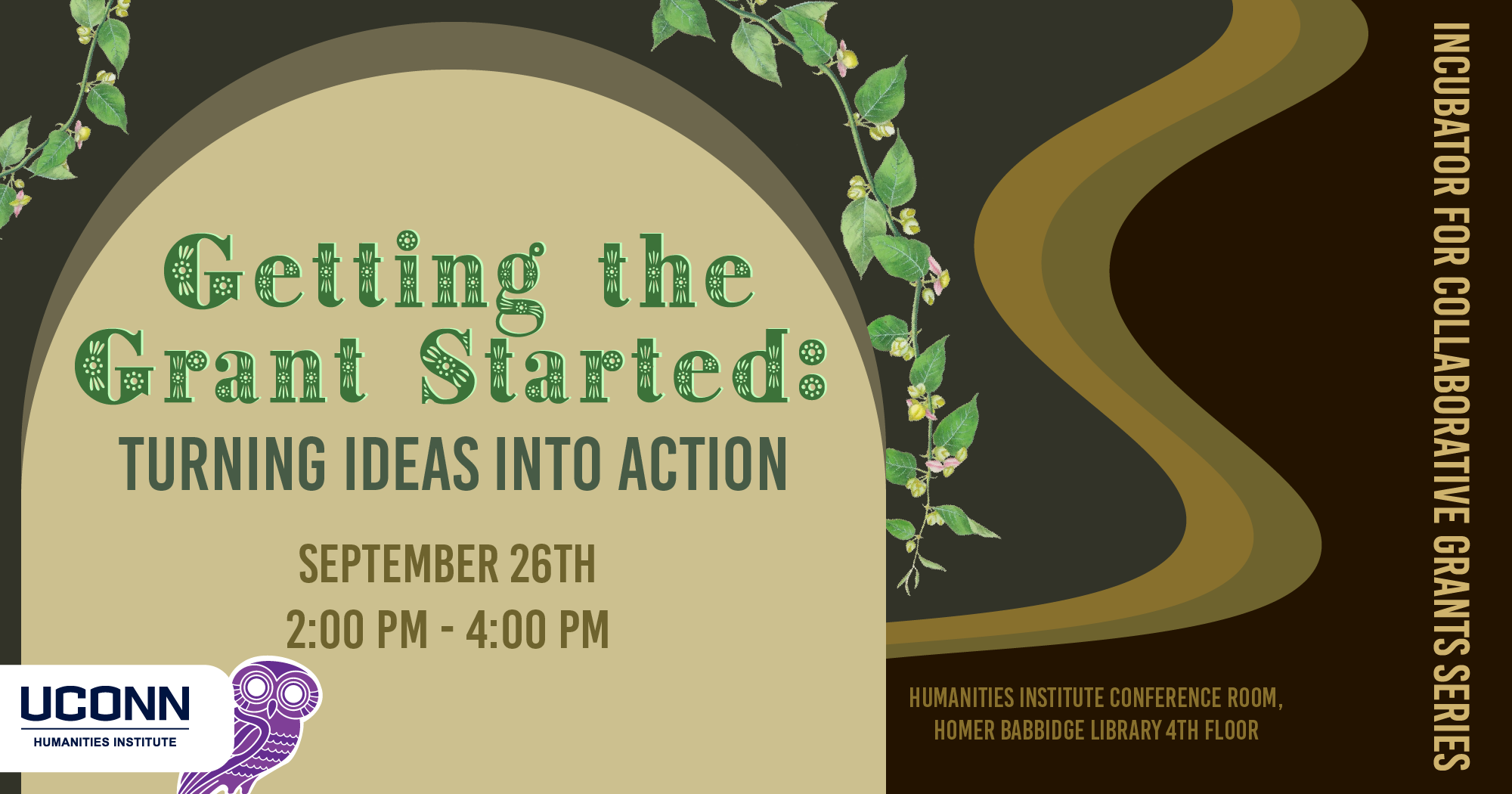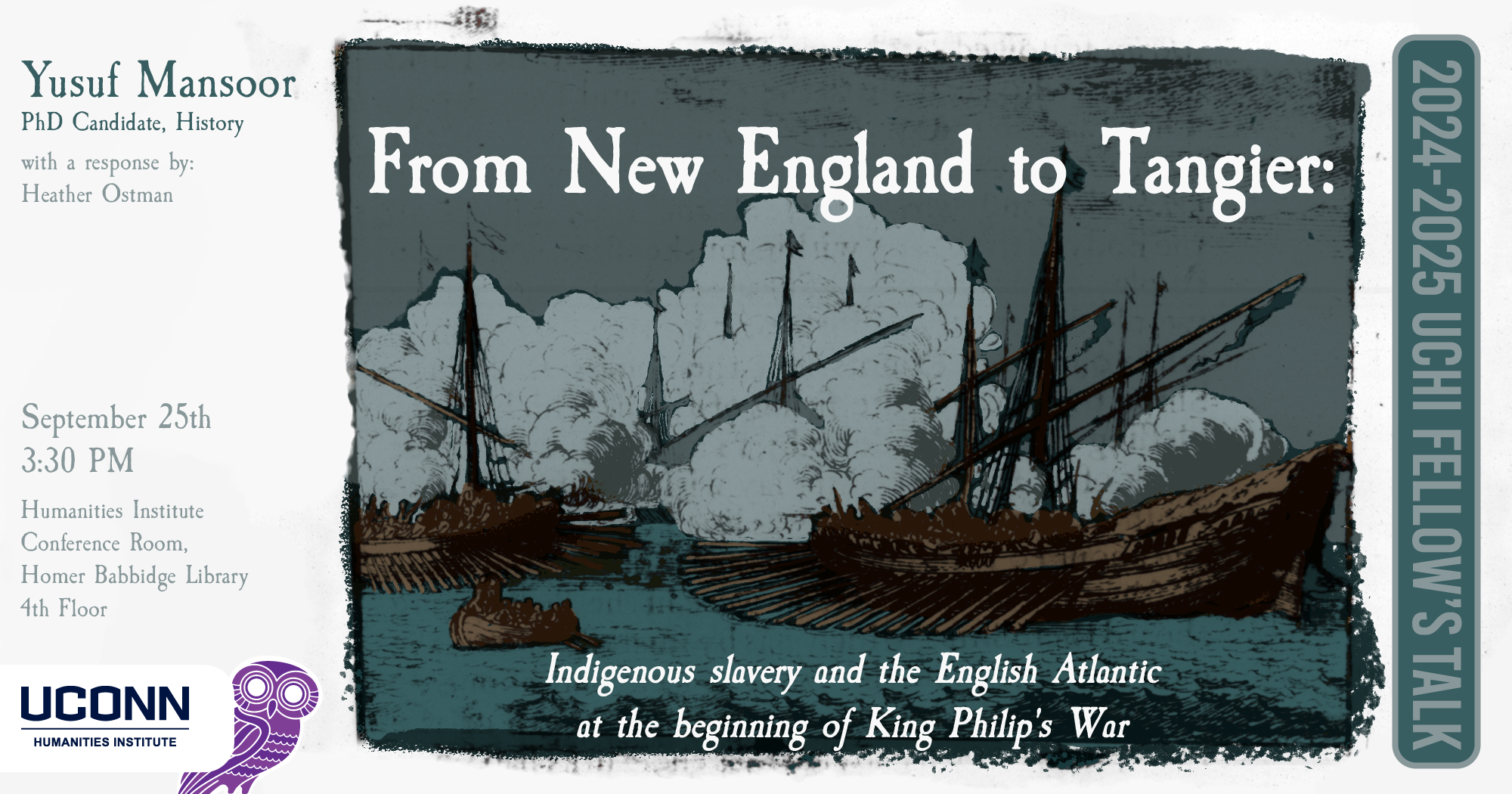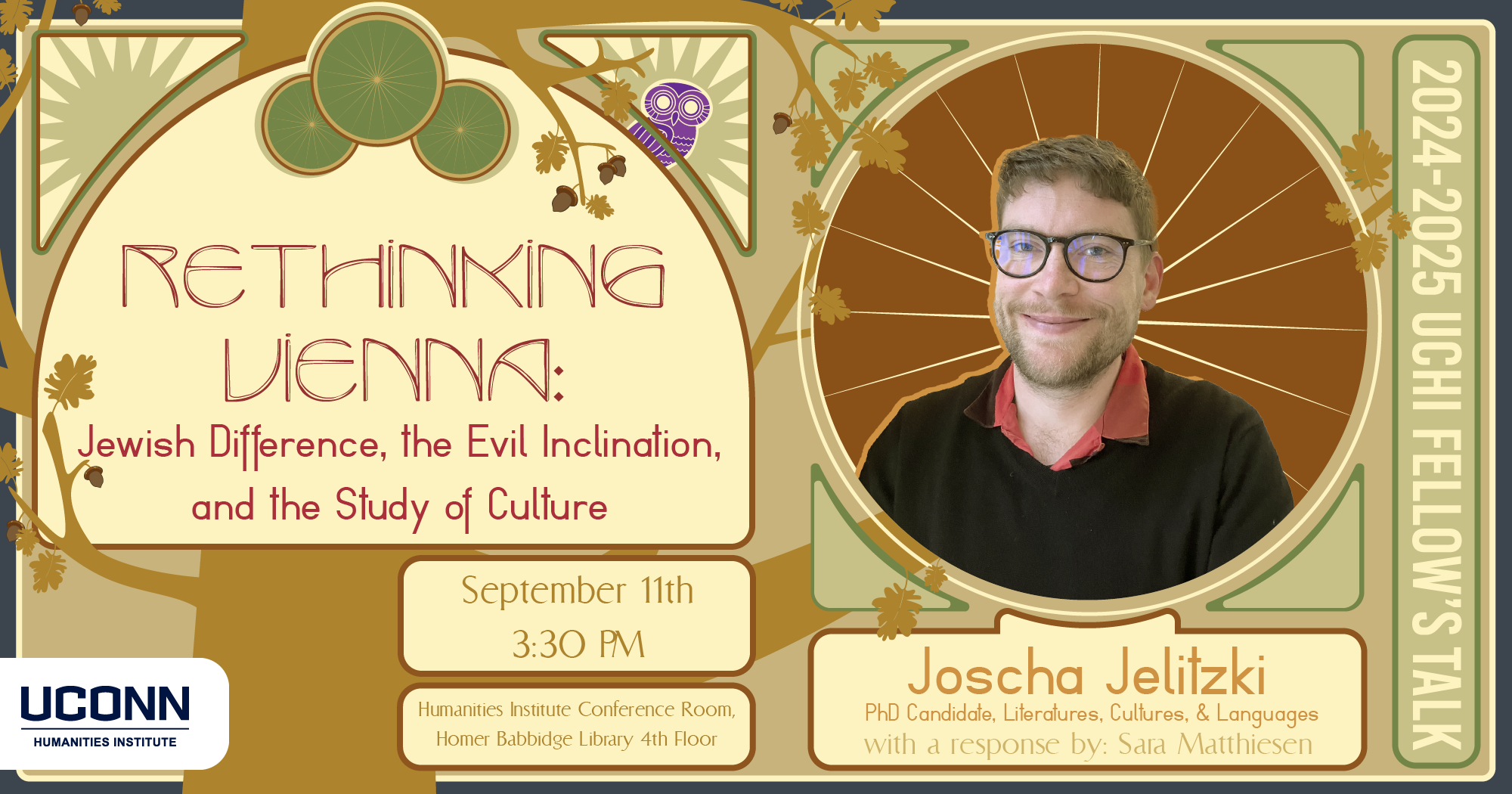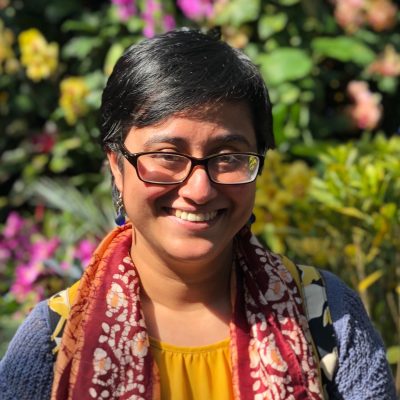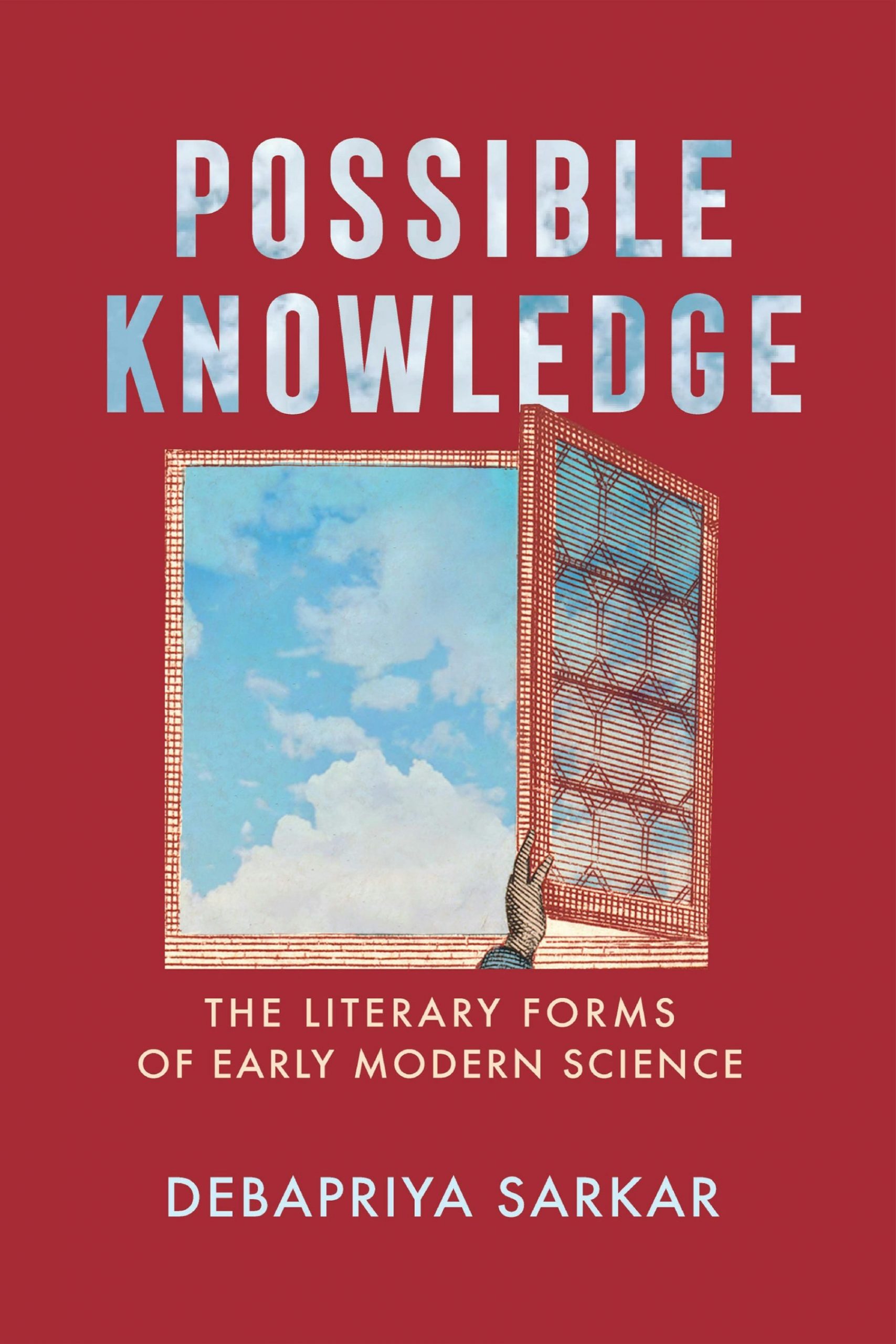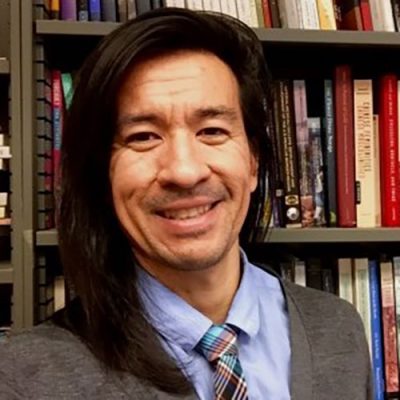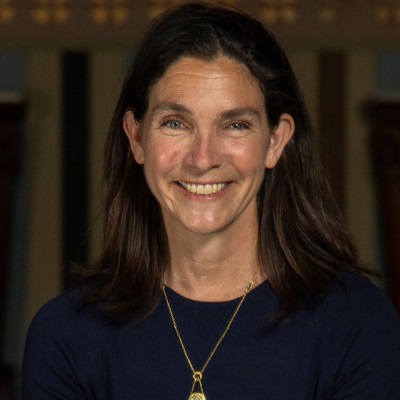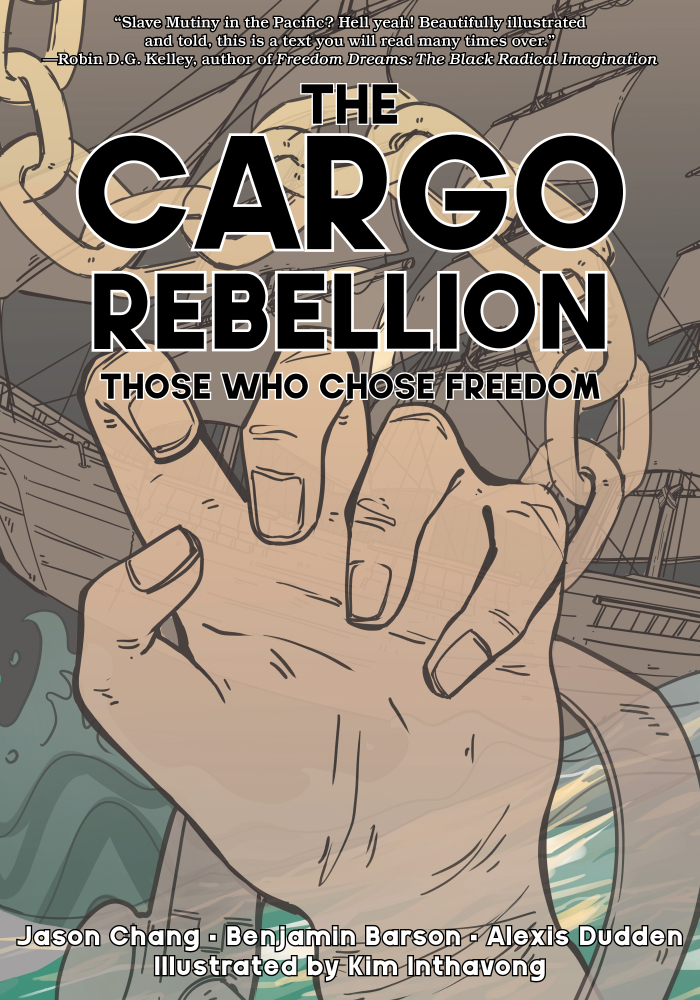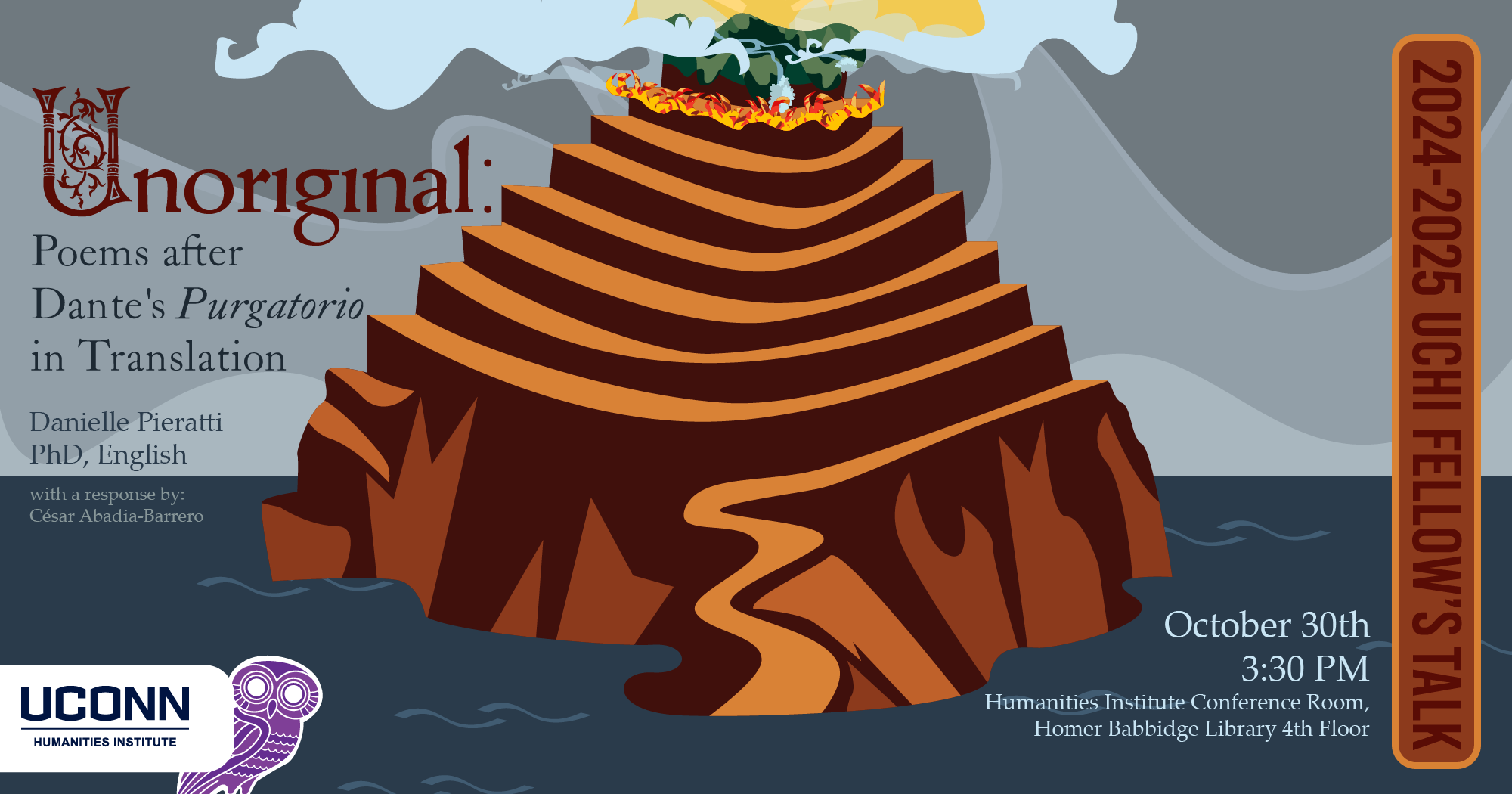
Unoriginal: Poems after Dante’s Purgatorio in Translation
Danielle Pieratti (Ph.D. Candidate, English, UConn)
with a response by César Abadia-Barrero (Anthropology, UConn)
Wednesday October 30, 2024, 3:30pm, Humanities Institute Conference Room (HBL 4-209)
The event will also be livestreamed with automated captioning.
Register to attend virtually
This talk will be a poetry reading with a critical introduction from Danielle Pieratti’s creative dissertation project entitled, “Unoriginal: Poems after Dante’s Purgatorio in Translation.” In addition to reading poems from her manuscript, Danielle will outline a creative and theoretical rationale for the choice of Purgatorio as the point of entry for her work, applying research in literary translation and translingualism. More than eighty English translations of the Purgatorio exist. What lends this work its ongoing relevance for Anglophone readers, and how might a poet derive inspiration from its tradition as a translated translingual text?
Danielle Pieratti is a current UCHI Dissertation Fellow and a PhD Candidate in the department of English. She is the author most recently of the poetry collection Approximate Body (Carnegie Mellon University Press 2023). Her first book, Fugitives (Lost Horse Press 2016), was selected by Kim Addonizio for the Idaho Prize and won the Connecticut Book Award for poetry. Transparencies, her translated volume of works by Italian poet Maria Borio, was released by World Poetry Books in 2022. She currently serves as poetry editor for the international literary journal Asymptote.
César Abadía-Barrero is a Colombian activist/scholar and Associate Professor of Anthropology and Human Rights at the University of Connecticut. His research approach is grounded in activist, collaborative, and participatory action research frameworks and integrates critical perspectives to study interconnections among capitalism, human rights, and communities of care. He has been a member of or collaborated with collectives and social movements in Brazil, Colombia, and Cameroon, examining how for-profit interests transform access, continuity, and quality of health care, and how communities resist forms of oppression and create and maintain alternative ways of living and caring. He is the author of I Have AIDS but I am Happy: Children’s Subjectivities, AIDS, and Social Responses in Brazil (2011 in English and 2022 in Portuguese) and Health in Ruins: The Capitalist Destruction of Medical Care (2022, English and Spanish editions).
Access note
If you require accommodation to attend this event, please contact us at uchi@uconn.edu or by phone (860) 486-9057. We can request ASL interpretation, computer-assisted real time transcription, and other accommodations offered by the Center for Students with Disabilities.
